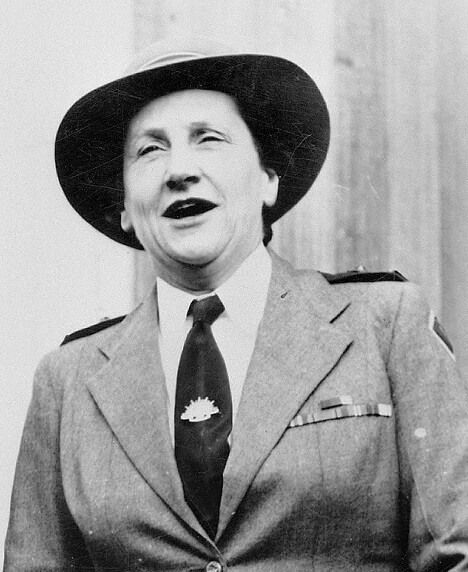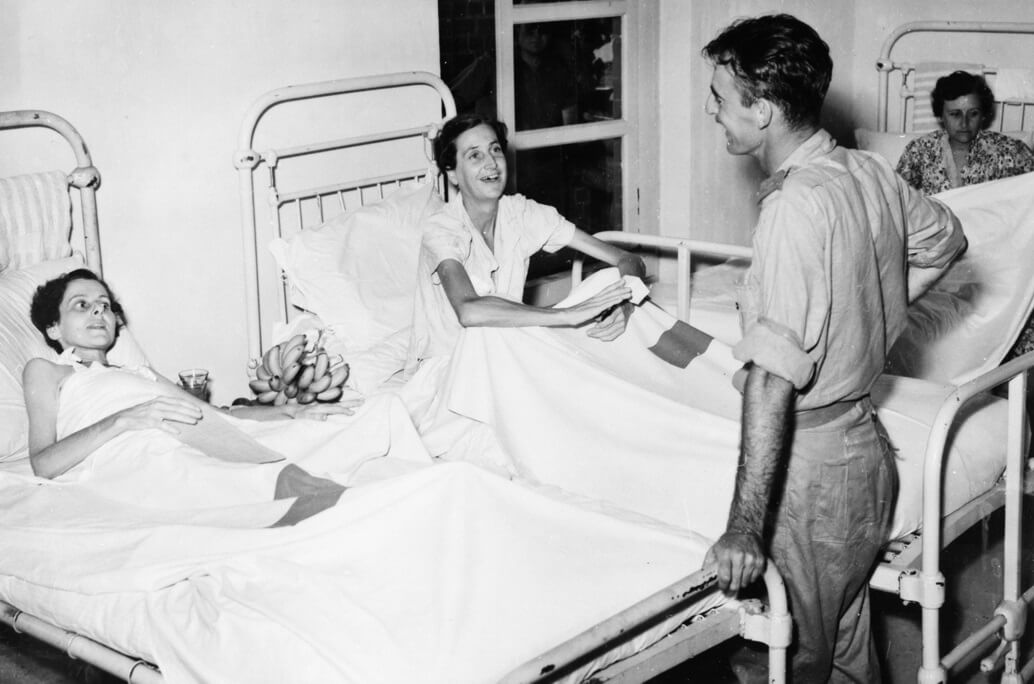Betty Jeffrey trained as a nurse at Melbourne’s Alfred Hospital in Melbourne, graduating in 1939. In 1941 she joined the Australian Army Nursing Service and was posted to the 2/10th Australian General Hospital in Malaya. The 2/10th was moved to Singapore on 18 February 1941.
Jeffrey was evacuated from Singapore on February 12th 1942 aboard the Vyner Brooke, sunk by Japanese bombers in the Banka Strait on 14th February 1942. She and another nurse, Iole Harper, spent three days in the water, finally making it ashore on Banka Island, where they surrendered to the Japanese. She spent more than 3 years as a prisoner in the Japanese ‘hell camps’.
Conditions were punitive. A wooden shelf about one metre from the ground was their bed. Jeffrey said, ‘We are sixty to one hut and lie alongside each other like sardines.

Betty Jeffrey
Reproduced courtesy Australian War Memorial
We haven't quite lost hope yet but by hokey if I'm still here next April Fool's Day — I won't be worth saving — can't say I am even now — have grown into a snitchy, bad tempered old spinster and look more like a chook or an old fowl every day.
Betty Jeffrey
Water and food were strictly rationed with drinking water limited to a mugful per person per day. Meagre rations of rice were issued, sometimes supplemented by food they scrounged. Jeffrey wrote in her diary on 30 April 1944:
Today I was so hungry that I could hardly walk. The first time it has hit me like this. I literally hadn't a thing to eat.
Malaria outbreaks were common owing to the swampy locality. Dengue fever, dysentery, skin diseases, bronchitis and myocarditis affected some of the nurses. Many suffered rheumatism, working ankle deep in mud. Infection and disease spread, including typhoid. Holes were dug in the jungle alongside the camp to empty bedpans, but there was no effective method of stopping infection with overcrowding and unsanitary conditions.
Jeffrey was liberated in 1945. She was suffering from tuberculosis and amoebic dysentery and was hospitalised for almost two years. She weighed just 32 kilograms. She later wrote: ‘You forget nothing, not a thing, from years like those.’
Sisters Jenny Greer and Betty Jeffrey (right) recovering in hospital in 1945 after their release from Japanese POW camps. Betty weighed just 32 kilograms.
Reproduced courtesy Australian War Memorial
While a P.O.W., Betty Jeffrey kept a diary, recording the physical and mental battle for survival, and the death of friends. The Japanese searched for diaries and there were severe consequences for those who kept them. Diaries were carefully hidden or thrown down the lavatory. Betty kept her diary sewn inside a small pillow for much of the time. Extracts from her diary were published in the Sunday Mail in 1954.
Readers are warned that there may be words and descriptions that may be culturally sensitive and which might not normally be used in certain public or community contexts. They are used here as they appear in original historical sources.

